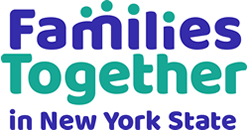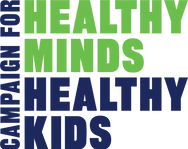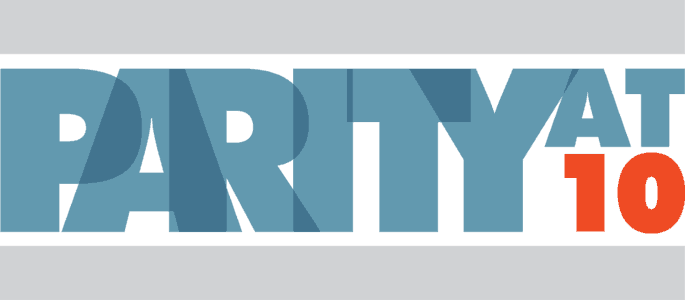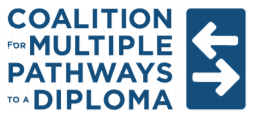About Our 2024 Policy Agenda
The Families Together 2024 Policy Agenda is created by families of children and youth with social, emotional, behavioral and cross-systems challenges.
Our goal is to ensure that ALL children and youth have the support they need in order to succeed. We represent thousands of families from across the state whose children have been involved in many systems including mental health, substance abuse, special education, juvenile justice, and foster care. Our board and staff are made up primarily of family members and youth who have been involved in these systems.
Download our 2024 FTNYS Policy Agenda
FEM 2024 Digital Folder
FY 2023 NYS Budget Highlights
This is a youth behavioral health crisis. Families need a workforce, not waitlists.
Allocate $195M to enhance children’s outpatient rates for community-based Child and Family Treatment and Support Services (CFTSS), Home and Community-based Services (HCBS), and Article 31 and 32 clinics serving children. Reforms should adjust children’s clinic rates to reflect the extra effort children require, add care coordination fees, and adjust to reflect actual volume of children receiving services under CFTSS and HCBS. This would enable community-based providers to hire an additional 1,300 clinicians and serve over 26,000 more children.
Pass a 3.2% Cost of Living Adjustment (COLA) and add an additional $500M in flexible funding to reverse decades of divestment from the community behavioral health system.
Family and Youth Peer Advocates for All:
- Expand flexible State Aid funding for Family and Youth Peer Support by at least $5.5 million.
- Match current peer rates in all settings to recently enhanced Mental Health Outpatient Treatment and Rehabilitative Services (MHOTRS) Clinic rates.
- Create cross-systems funding for cross-systems work by ensuring all child-serving systems are funding the use of Family and Youth Peer Support.
Address harmful discrimination of behavioral health by insurance companies:
- Require commercial insurance to pay at least Medicaid APG rates for behavioral health and cover services available under Medicaid such as CFTSS.
- Support regulations to improve network adequacy standards by requiring insurance to provide out-of-network coverage at no additional cost if they cannot provide appointments within 10 days.
- Carve behavioral health out of for-profit Medicaid Managed Care contracts and invest savings back into the system.
- Ramp up enforcement of behavioral health parity by doubling fines and staff up enforcement agencies
- Make Telehealth Payment Parity permanent.
Support loan forgiveness, scholarship programs, and tuition remission for individuals pursuing a career in children’s behavioral health, with particular enhancements for bilingual students, BIPOC students, and other underrepresented and highly-valued practitioners.
Expand new Youth Assertive Community Treatment (ACT) Teams and better resource existing ones.
Pass the SAFE for Kids Act and the Child Data Privacy Act to mitigate the negative impacts of social media on youth emotional wellbeing including limiting access to addictive feeds, notifications during sleeping hours, additional mechanism for parental control, limiting access to children’s personal data, empowering the Attorney General, and minors and parents to bring actions against social media companies.
Youth are more likely to access mental health programs in schools. Students need healing-centered schools.
Expand the use of Family and Youth Peer Advocates in school systems to help young people achieve their potential and protect their right to a free, appropriate public education. Peer Advocates can help families:
- Secure specialized support in schools through Individualized Education Plans or 504 plans,
- Provide mentorship and partner with schools to create safe spaces for students and parents to discuss their mental health challenges and support each other
- Help overcome challenges like truancy and suspensions.
Add $45M to establish school-based mental health clinics in every school that needs one by investing toward flexible start-up funds, maintaining enhanced rates and requiring insurance coverage.
Double the Student Mental Health Support Grants to School Districts from $50 million over 5 years to $100 million over 5 years to improve student access to mental health resources.
Dedicate $105 million to expand community schools and their technical assistance statewide and maintain the current Community Schools Set-Aside of $250 million to ensure sustainability for current community schools.
Pass the Solutions Not Suspensions Act (A5691 Solages) and embrace youth, parent, and educator-led solutions that center restorative justice in place of policing infrastructure, practice, and culture from New York State public schools.
Set appropriate Student to Mental Health Professional Staff Ratio A5191 (Gonzalez-Rojas)/S356 (Jackson)to ensure that all elementary, intermediate, middle, junior and senior high schools throughout New York State have a full-time licensed social worker and a full-time licensed psychologist on staff to meet the needs of their students.
Support the NYS School Mental Health Resource Training Center to promote school climate, schoolwide approaches to social-emotional learning, and professional development of faculty.
Develop multiple pathways to a high school diploma beyond high stakes testing.
Poverty undermines family wellbeing. Invest directly toward essential needs to improve the conditions where families raise their children.
Create the Child and Family Well-Being Fund to establish a funding stream dedicated to community resources outside of the CPS system, driven by communities most impacted by poverty and child welfare, and promotes social fabric.
Increase the Public Assistance housing allowance to a level that stabilizes housing for more families.
Add $250M to create the Housing Access Voucher Program (HAVP) to aid nearly 15,000 families or individuals at-risk or currently homeless.
Move toward universal child care by creating a permanent state child care fund to increase child care worker compensation and reduce unnecessary barriers to subsidies and access for families who need care outside of 9 to 5, weekday hours.
Expand and strengthen New York’s child tax credit (CTC) and Earned Income Tax Credit to put more financial resources into the hands of families.
Establish and fund a permanent, statewide Healthy School Meals for All program that provides school breakfast and lunch at no cost to all students in schools participating in the National School Lunch Program.
Ensure continuous Medicaid and Child Health Plus health coverage for all enrolled children from birth to age 6.
Establish the Mothers & Infants Lasting Change (MILC) allowance, S.4578A (Ramos) /A.6197A (Clark)to establish a pilot that provides financial support to parents of infants at a critical period in their lives.
Put Families First in Child Welfare
Adopt the broad use of Family Peer Advocates (FPAs) and Youth Peer Advocates (YPAs) in the Child Welfare system.
Improve the Child Welfare Housing Subsidy by increasing eligibility of former foster youth up to age 24 and index to inflation.
Expand access to timely and high quality parental legal representation statewide by
adding $9M to the Office of Indigent Legal Services budget.
Narrow the front door of child protective services:
- End anonymous retaliatory Child Protective Services calls by passing the Anti-Harassment in Reporting Act A2479 (Hevesi)/ S902 (Brisport).
- Pass a “Miranda Bill of Rights for parents under CPS investigation to require caseworkers investigating child maltreatment to notify parents and caretakers of their rights A1980 (Walker)/S901 (Brisport).
- Protect Informed Consent by requiring healthcare providers to obtain informed consent before testing pregnant and perinatal people and their newborns in medical settings A109B (Rosenthall)/S320B (Salazar).
- Transition from a system of mandatory reports to mandatory support.
Young people need connections, resources and family, not institutions.
- Reduce placements of foster youth in congregate care and incentivize family-based care for children of all ages through enhanced foster boarding home rates, kin, and reunification with parents.
- Create a unified statewide kinship navigator service that consolidates existing local programs, includes legal assistance, and funds it at $10 million dollars.
- Support youth aging out of foster care with housing, mentorship, employment, education and other resources needed to transition into adulthood.
Young people are not their worst mistakes. New York must defend and advance youth justice.
Open up hundreds of millions of underutilized ‘Raise the Age’ funding for critical community-based services and programming by:
- Expedite counties’ access to the already appropriated hundreds of millions of dollars for the Raise the Age law’s implementation.
- Allow local community based organizations to directly apply for State RTA implementation funds rather than going through their counties.
- Ensure New York City is able to access the RTA funding.
- Increase the state’s Supervision and Treatment Services for Juveniles Program (STSJP) appropriation
Pass the Youth Justice & Opportunities Act S.3426 (Myrie) / A.4238 (O’Donnell) to expand sealing protections for youth age25 and younger who face the threat of permanent criminal convictions and adult prison sentences.
Pass the Right 2 Remain Silent Act A1963 (Joyner)/S1099 (Bailey) to protect juveniles during police interrogations.
Achieve universal access to high-quality afterschool, summer and expanded learning programs.
Embrace a Public Health Response to Gun Violence that includes community-based violence intervention, high-quality youth engagement programs, including credible messengers, and more.
Pass Daniel’s Law A2210 (Bronson)/S2398 (Brouk) to establish a comprehensive community mental health emergencies response that does not rely on police.





